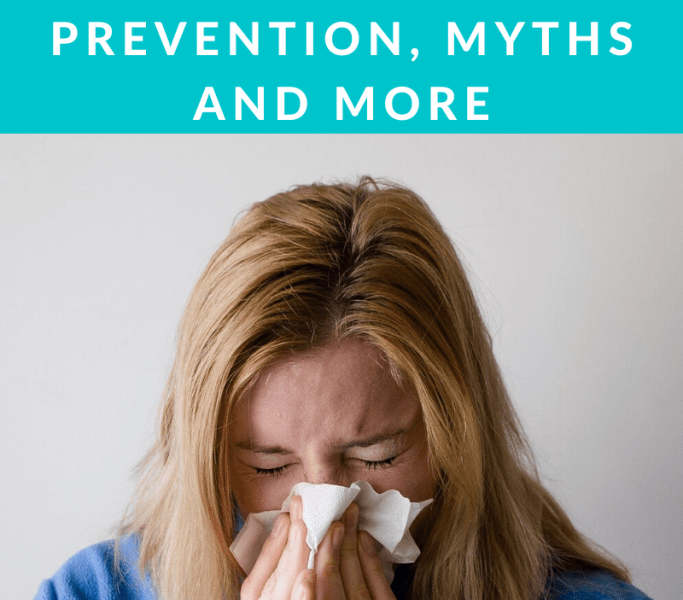With the onset of this deadly virus, everyone is not only scared but also full of queries and doubts. Here is an attempt to answer all your questions and clarify all doubts. Read this post to know everything about Coronavirus or COVID-19. Also included in this post- some myths related to this virus and the latest updates from around the world.

What is Coronavirus or COVID-19?
According to WHO, “Coronaviruses (CoV) are a large family of viruses that cause illness ranging from the common cold to more severe diseases such as Middle East Respiratory Syndrome (MERS-CoV) and Severe Acute Respiratory Syndrome (SARS-CoV). A novel coronavirus (nCoV) is a new strain that has not been previously identified in humans.”
What began with a handful of mysterious illnesses in a vast central China city has now travelled the world, jumping from animals to humans and from obscurity to international headlines. First detected on the last day of 2019, the novel coronavirus has infected more than 85000 as we speak — within China’s borders and beyond them — and has killed more than 2,900. It has triggered unprecedented quarantines, stock market upheaval and dangerous conspiracy theories.
What are the symptoms this coronavirus causes?
The most common symptoms of Coronavirus are fever, tiredness, and dry cough. Some patients may have aches and pains, nasal congestion, runny nose, sore throat or diarrhoea. These symptoms are usually mild and begin gradually. Some people become infected but don’t develop any symptoms and don’t feel unwell. After a week, it leads to shortness of breath and some patients require hospital treatment. The incubation period – between infection and showing any symptoms – lasts up to 14 days. Around 1 out of every 6 people who get Coronavirus (COVID-19) becomes seriously ill and develops difficulty breathing. Older people, and those with underlying medical problems like high blood pressure, heart problems or diabetes, are more likely to develop serious illness.
What are the symptoms?
It seems to start with a fever, followed by a dry cough. After a week, it leads to shortness of breath and some patients require hospital treatment. The incubation period – between infection and showing any symptoms – lasts up to 14 days, according to the World Health Organization (WHO). But some researchers say it may be as long as 24 days. And Chinese scientists say some people may be infectious even before their symptoms appear.
How does Coronavirus (COVID-19) spread?
The best explanation for this rapid spread is that it’s being passed through droplets from coughing or sneezing. When these virus-laden droplets from an infected person reach the nose, eyes, or mouth of another, they can transmit the disease.
Protection measures for everyone-
Stay aware of the latest information on the COVID-19 outbreak, available on the WHO website and through your national and local public health authority. COVID-19 is still affecting most people in China with some outbreaks in other countries. Most people who become infected experience mild illness and recover, but it can be more severe for others.
Take care of your health and protect others by doing the following:
- Regularly and thoroughly clean your hands with an alcohol-based hand rub or wash them with soap and water.
Why? Washing your hands with soap and water or using alcohol-based hand rub kills viruses that may be on your hands. - Maintain at least 1 metre (3 feet) distance between yourself and anyone who is coughing or sneezing.
Why? When someone coughs or sneezes they spray small liquid droplets from their nose or mouth which may contain the virus. If you are too close, you can breathe in the droplets, including the Coronavirus(COVID-19) if the person coughing has the disease. - Avoid touching eyes, nose and mouth.
Why? Hands touch many surfaces and can pick up viruses. Once contaminated, hands can transfer the virus to your eyes, nose or mouth. From there, the virus can enter your body and can make you sick. - Make sure you, and the people around you, follow good respiratory hygiene. This means covering your mouth and nose with your bent elbow or tissue when you cough or sneeze. Then dispose of the used tissue immediately.
Why? Droplets spread the virus. By following good respiratory hygiene you protect the people around you from viruses such as cold, flu and COVID-19. - Stay home if you feel unwell. If you have a fever, cough and difficulty breathing, seek medical attention and call in advance. Follow the directions of your local health authority.
Why? National and local authorities will have the most up to date information on the situation in your area. Calling in advance will allow your health care provider to quickly direct you to the right health facility. This will also protect you and help prevent the spread of viruses and other infections. - Stay informed on the latest developments about Coronavirus (COVID-19). Follow the advice given by your healthcare provider, your national and local public health authority or your employer on how to protect yourself and others from the Coronavirus.
Why? National and local authorities will have the most up to date information on whether COVID-19 is spreading in your area. They are best placed to advise on what people in your area should be doing to protect themselves.
Now Let’s Talk about some Myths!
In the present era of technology, myths, rumours, false news, have become an indispensable part of our lives. It is extremely important that we know how what is wrong and what is right to safeguard ourselves and also to avoid spreading any false news.
Is it safe to receive a package from any area where COVID-19 has been reported?
Yes. The likelihood of an infected person contaminating commercial goods is low and the risk of catching the virus that causes COVID-19 from a package that has been moved, travelled, and exposed to different conditions and temperature is also low.
Can an ultraviolet disinfection lamp kill the Coronavirus?
UV lamps should not be used to sterilize hands or other areas of skin as UV radiation can cause skin irritation.
Can spraying alcohol or chlorine all over your body kill the Coronavirus?
No. Spraying alcohol or chlorine all over your body will not kill viruses that have already entered your body. Spraying such substances can be harmful to clothes or mucous membranes (i.e. eyes, mouth). Be aware that both alcohol and chlorine can be useful to disinfect surfaces, but they need to be used under appropriate recommendations.
Can eating garlic help prevent infection with the new Coronavirus?
Garlic is a healthy food that may have some antimicrobial properties. However, there is no evidence from the current outbreak that eating garlic has protected people from the new coronavirus.
Coronavirus in Figures.
Coronavirus Cases: 85,679
Deaths: 2,933
Number of Countries affected: 60
Coronavirus Latest Updates (February 29 GMT):
AMERICA-
- 3 new cases in the United States
- 1 new case in Canada (Ontario)
ASIA-
- 594 new cases and 1 death in South Korea.
- 1 new case in Japan
Don’t forget to share the post.
Read more on the blog here.




So important! Thanks for all the work you’re putting in!
Like!! Great article post.Really thank you! Really Cool.
Stay safe dear
I hope all is well at your end?
I hope we find a cure for this Covid soon
Stay Safe,
Thank you for sharing this
Thank you so much for giving everyone an exceptionally nice possiblity to read from this site. It’s always so brilliant and also jam-packed with a lot of fun for me and my office peers to search your web site particularly three times a week to learn the new stuff you will have. Not to mention, I’m always impressed with all the striking things you give. Certain 3 points in this post are essentially the most suitable we have had.